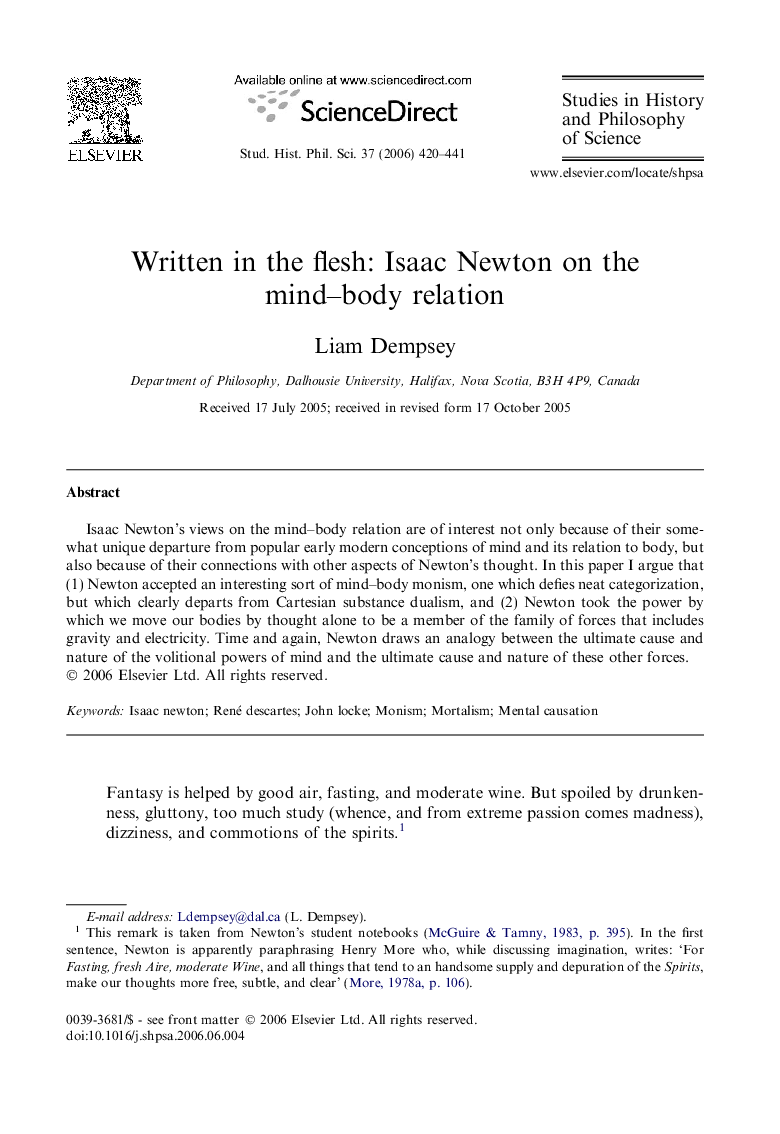| Article ID | Journal | Published Year | Pages | File Type |
|---|---|---|---|---|
| 1160527 | Studies in History and Philosophy of Science Part A | 2006 | 22 Pages |
Isaac Newton’s views on the mind–body relation are of interest not only because of their somewhat unique departure from popular early modern conceptions of mind and its relation to body, but also because of their connections with other aspects of Newton’s thought. In this paper I argue that (1) Newton accepted an interesting sort of mind–body monism, one which defies neat categorization, but which clearly departs from Cartesian substance dualism, and (2) Newton took the power by which we move our bodies by thought alone to be a member of the family of forces that includes gravity and electricity. Time and again, Newton draws an analogy between the ultimate cause and nature of the volitional powers of mind and the ultimate cause and nature of these other forces.
